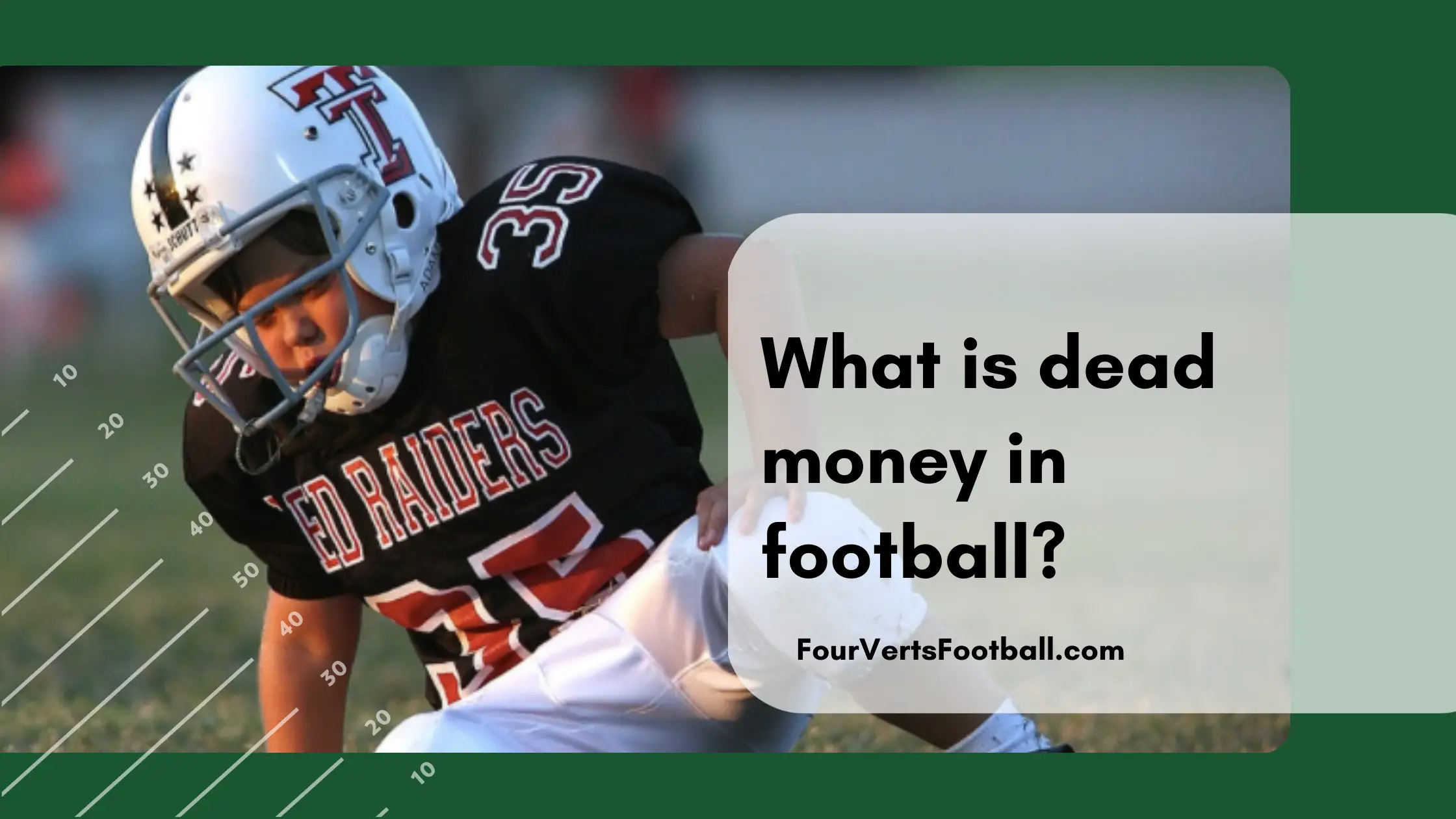Dead money in football is a term often thrown around by sports media especially during free agency. The trouble is many fans don’t understand what this football term means.
In the simplest terms, dead money in football refers to money that must be allocated to the salary cap based on players that have been cut. When a player is cut from an NFL team his salary does not simply disappear.
Teams will be forced to pay for a portion of the contract until all the dead money is paid off. Dead money is something you do not want your team to have.
Having dead money on your salary cap is something you do not want. This money is used on players that have been cut from your team as opposed to your current roster.
How Is Dead Money Calculated In Football
There is a lot that goes into the final number that is calculated regarding dead money. When a player is signed there are often roster bonuses, performance bonuses, signing bonuses, and guaranteed money to take into account.
That all being said the calculation of this number can be broken down into a simpler formula.
To find out the dead cap a team will retain when cutting a player you only need to have three pieces of information.
The total amount of money paid to the player, the total guaranteed money remaining in the contract and the total cap hit the player has incurred so far in the contract.
The formula looks like this:
Total paid to the player + Guaranteed money still owed – Cap hit so far = Dead money
This means you want to add up all the money that has been played to the player on the contract so far. You then want to add the portion of the guaranteed money that has not been played to the player.
You then want to subtract the cumulative cap hit of the player so far. This means you add up all the cap hits that the player has had on the contract.
The answer you get is the total dead money attributed to this player. And as you can tell from the formula this calculates how much you will pay the player in total minus how much they have been paid in the salary cap.
Does Dead Cap Money Go To The Player?
So we have established that dead cap money is retained on the salary cap when a player is cut. But does a player get the dead money when he is cut?
The answer to this question is yes and no. When a player has a dead cap of say five million he will not receive this full figure.
The player himself is only eligible to receive the guaranteed money that has not been paid out in his contract.
As we showed earlier in the article there is guaranteed money involved in dead money but it does not make up the total. The rest of the money will come from the money that has been paid to the player yet has not been counted against the cap.
This portion of the money is simply counted against the salary cap, but the money itself is not given to anyone.
The reason players do not get all the money is that only parts of each players contract is guaranteed. When a player signs a fifty million dollar contract for example he could expect somewhere from twenty to thirty million guaranteed.
This means that the player get twenty or thirty million guaranteed money regardless of how long they play for the team. Even if the player is cut on the first day of camp this portion of the contract is going to the player no matter what.
The rest of the contract is not guaranteed meaning if you are cut from the team you will not be receiving it. In most cases, guaranteed money is spread throughout the contract meaning you will receive some each year.
If you happen to be cut you will receive whatever remaining guaranteed money that is still owed to you.
Is Dead Cap Always Bad?
Dead cap is certainly something you do not want filling up your team’s salary cap but is it always the worst option?
The answer to this question is no. In a perfect world you would have no dead cap on your salary cap but on some occasions, it can be for the best.
Say for example a player is making five million dollars a year but their player has significantly declined. This player’s guaranteed money has been paid out and it looks like cutting this player will carry a dead cap of 1 million dollars for one year.
At this point you must now decide do I want this player at five million a year or can I sign a player for four million a year. If a player that costs for million a year can outplay your current player then taking on the dead cap is a good idea.
This shows you how in some situations taking on some dead cap may be a good idea. Though these situations almost always arise when a team has signed a player to a contract much higher than his pay grade.
If you enjoyed this article you may want to check out some of our other content regarding football terminology.
Such as our guides to learning about scorigamies in football or what the term tanking means.

